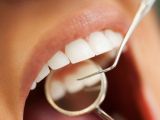Speaking at a recent meeting of the American College of Neuropsychopharmacology held in the city of Scottsdale in Arizona, US, researchers announced that, having carried out a series of experiments, they found that it might be possible to use laughing gas to treat severe depression.
More precisely, specialists with the Washington University School of Medicine in St. Louis and their colleagues argue that, according to evidence at hand, laughing gas, whose official name is nitrous oxide, can help alleviate some of the symptoms associated with severe depression.
Using laughing gas to treat mental health disorders
In a report in the journal Biological Psychiatry, the researchers behind this investigation explain that, as part of their study, they administered laughing gas, which is known to induce a state of euphoria when inhaled, to 20 patients suffering from treatment-resistant clinical depression.
The wellbeing of these patients was assessed on both the day that they were offered the treatment and the day after. It was thus discovered that, having been given nitrous oxide, two thirds of the participants in this study started feeling somewhat better.
Specifically, these patients are understood to have experienced an improvement in the severity of clinical depression symptoms such as feelings of guilt, anxiety, insomnia, suicidal thoughts and sadness. Of the people involved in this study, some even said that their symptoms nearly vanished.
By comparison, just one third of the same volunteers reported an improvement in their severe depression symptoms over a 24-hour period after they were made to breathe not laughing gas, but a placebo compound comprising oxygen and nitrogen.
Hence, the Washington University School of Medicine in St. Louis researchers now argue that it might be possible to use laughing gas to treat clinically depressed individuals proven to be unresponsive to other drugs designed to alleviate the symptoms associated with this condition.
“Our findings need to be replicated, but we think this is a good starting point, and we believe therapy with nitrous oxide eventually could help many people with depression,” explains principal investigator Peter Nagele, MD.
What makes laughing gas a noteworthy depression treatment
Researcher Peter Nagele and colleagues say that about one third of all clinical depression patients fail to respond to standard treatments. What this means is that modern medicine is in dire need of new therapies that can take on this mental health disorder and help people feel somewhat better.
What makes laughing gas appealing as a severe depression treatment is the fact that, after being breathed in, it does not take all that long to leave the body. Besides, it does not appear to cause any significant side effects. In fact, its most common ones are nausea and vomiting.
Besides, the outcome of this series of experiments carried out by specialist Peter Nagele and his team indicates that nitrous oxide can almost immediately act on severe depression symptoms and alleviate them. By comparison, most of the oral antidepressants now in use take days to have an effect. The same is true about cognitive behavior therapy.
“If our findings can be replicated, a fast-acting drug like this might be particularly useful in patients with severe depression who may be at risk for suicide and who need help right away. Or perhaps the drug could be used to relieve symptoms temporarily until more conventional treatments begin to work,” says researcher Charles F. Zorumski.
The scientists behind this research project now want to carry out further investigations and try and figure out how different concentrations of laughing gas are likely to affect individuals suffering from clinical depression.

 14 DAY TRIAL //
14 DAY TRIAL // 



